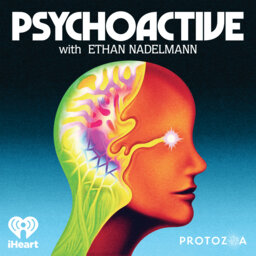Graham Pechenik on Psychedelic Patents & Law
Jockeying over patents is driving investment and competition among the growing number of people and companies trying to profit from the psychedelics renaissance. Graham Pechenik is one of the smartest and most respected attorneys specializing in this area. We started off by discussing a recent victory against the DEA, which had tried to put a number of promising compounds into Schedule I. Most of our conversation thereafter focused on current battles among investors, activists and researchers, the challenges of trying to reform a patent system that is widely seen as flawed and even broken, and alternative paths for maximizing the benefits and accessibility of psychedelic medicine.
In 1 playlist(s)
PSYCHOACTIVE
Drugs, drugs, drugs. Almost everyone uses them. Almost everyone has an opinion about them. Drug poli…Social links
Follow podcast
Recent clips

Steve Rolles on Legalizing Drugs
1:32:21

Charley & Shelley Wininger On Healthy Aging & Sex with MDMA
1:03:35

Paul Gootenberg on the Global History of Drugs
1:01:33
 PSYCHOACTIVE
PSYCHOACTIVE